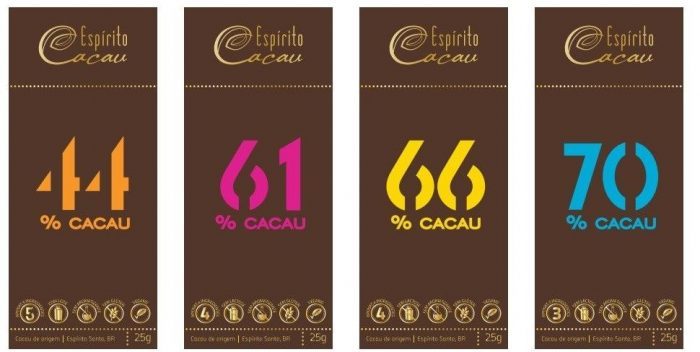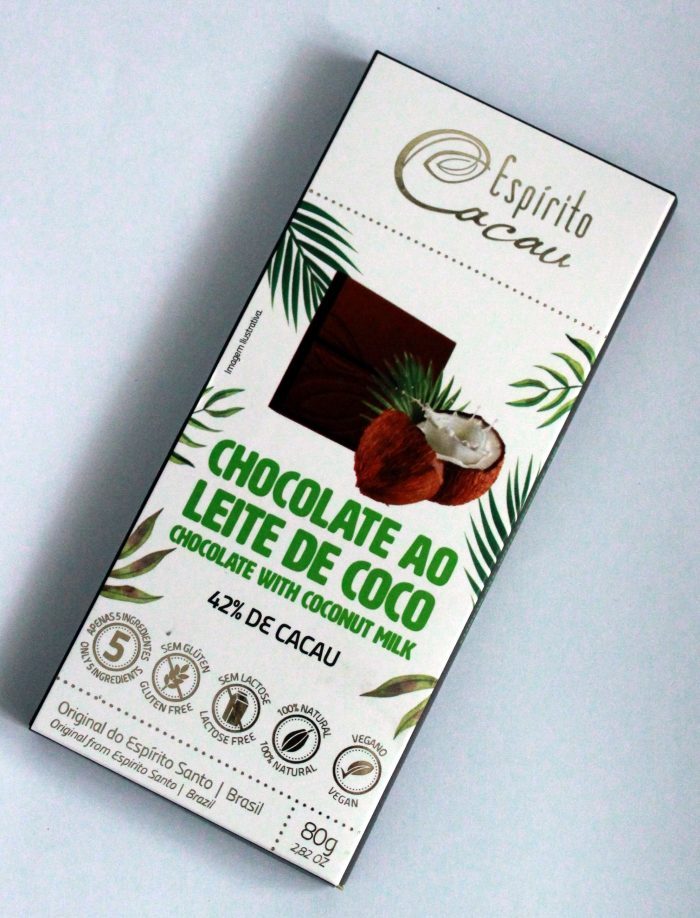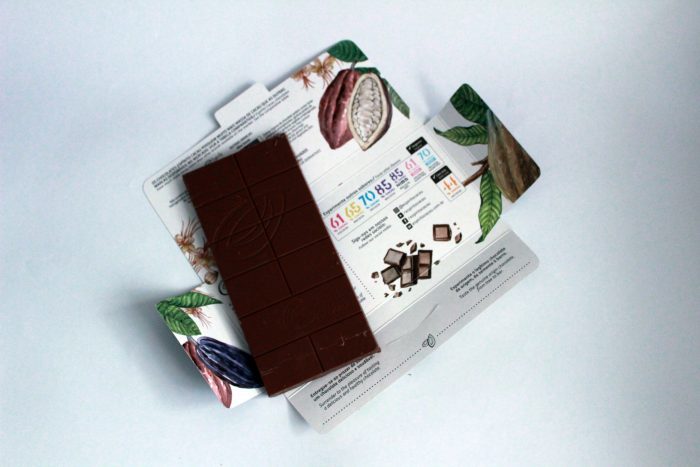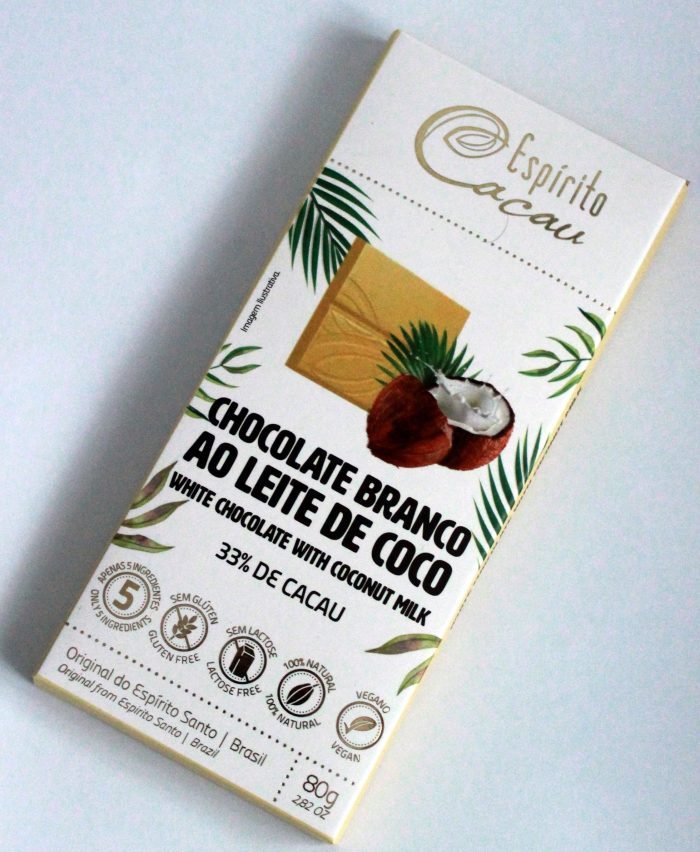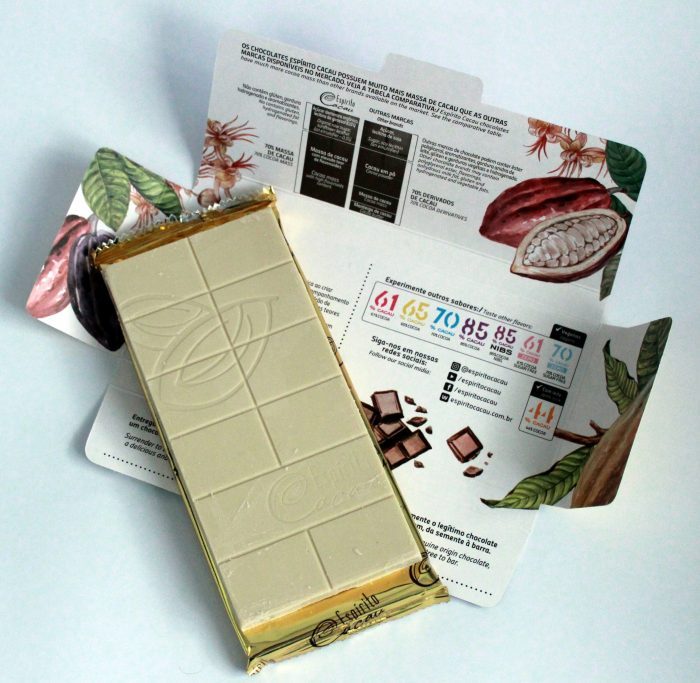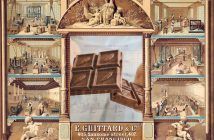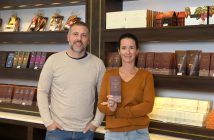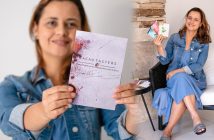The next step is to receive the kosher product certification, in order market them to the Jewish community.
On November 5, 2015, Paulo Gonçalves, owner of the Tree-to-Bar chocolate brand, Espírito Cacau (espiritocacau.com.br), was in Las Vegas, at a meeting with executives from two major hotel chains, Renaissance and Mariott, to close a chocolate supply agreement for 20,000 hotel beds. The feat may represent a monumental leap in his family business, which included two cocoa farms, a factory recently set up to serve the U.S. market and whose machinery was the most modern for the time, and a model store recently installed in Vitória, with a view to testing the franchise model.
The day, however, did not end well for Paulo who, despite having managed to close the partnership, received a call from Brazil moments later, warning that the mining tailings dam called “Fundão,” operated by Samarco Mineração – a joint venture of the world’s largest companies mining companies, the Brazilian Vale S.A. and the Anglo-Australian BHP Billiton – had collapsed.
To this day, the Fundão dam failure is considered the industrial disaster that caused the greatest environmental impact in Brazilian history and the largest in the world involving tailings dams.
The tailings reached the Doce River, whose drainage basin is used by a population of 230 municipalities in the states of Minas Gerais and Espírito Santo. The family’s two farms, Ceará and São José, were affected, their newly implanted irrigation wires were compromised, and thousands of newly planted cocoa trees died.
The agreement with the Americans had to be postponed, as the factory was also affected, becoming unable to supply the demand of the hotels. After the environmental tragedy, the next two years, 2016 and 2017, were even more challenging, involving a severe drought. The result was a drop in cocoa production, from 4,000 bags per year to 400 bags. “It was, quite literally, a mud bath in our lives,” he said.
Growing again
After five years, Paulo still has not received the appropriate compensation, but he is managing to turn things around, and business has grown again, thanks mainly to a business agreement to export his chocolates to the United Arab Emirates and, surprisingly, to the pandemic. “Since March, our sales in the domestic market have grown 100%, as consumers are more concerned with the quality of the products they consume,” he argued.
In addition to online sales, major supermarket chains are also attentive to these changes, and according to the businessman, Bean-to-Bar or Tree-to-Bar chocolates, as is the case of Espírito Cacau, are the new bet of the retail chains: “Our products are already sold at Pão de Açúcar, Natural da Terra (SP), Empório Santa Luzia, Zafari (RS), and at other chains in Belo Horizonte, Vitória, Goiânia, and Brasilia, among others,” he said.
With an eye on this niche of more natural and vegan foods, the company is launching 100% natural and glute- and lactose-free bars, whose recipes include coconut milk.
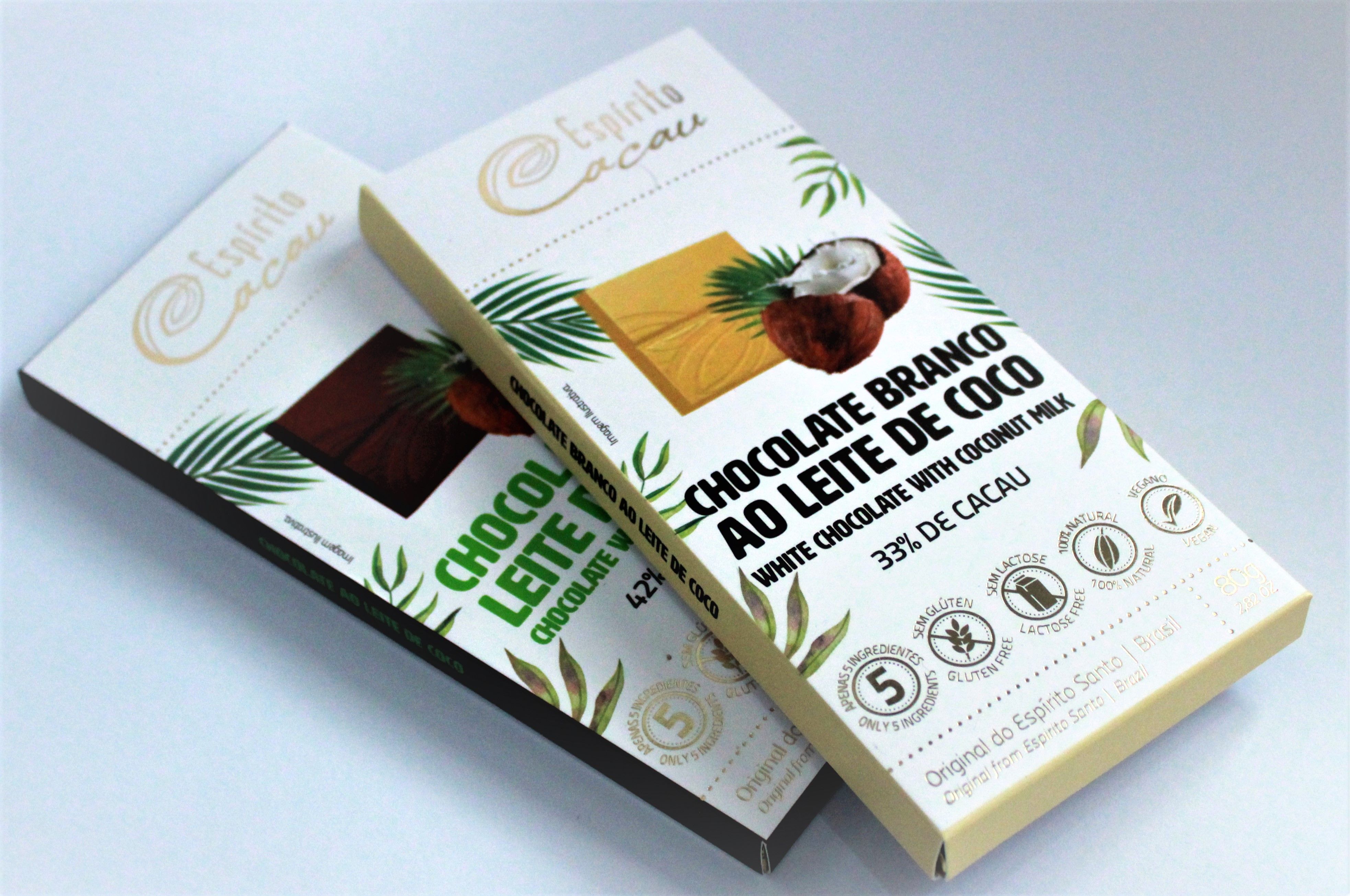
Made with original cocoa, one of the new releases is the 42% Cocoa Coconut Milk Chocolate, in which the intense flavor of the brand’s chocolate gains a creamier texture and the benefits of coconut milk.
The other launch, 33% Cocoa Coconut White Milk Chocolate, is made with cocoa butter. The new bars are made with cocoa mass and butter, organic demerara sugar and sunflower lecithin, being 100% natural, free of gluten, lactose and preservatives.
“We do not use flavorings or chemicals to improve our chocolate. We only use our pasta and butter to preserve the terroir of Espírito Santo, which has been producing the best cocoa in Brazil,” he added.
Another part of the installed industrial park is dedicated to producing high-quality industrial chocolate, under the brand Chocolate Capixaba, sold in boxes of 12 one-kilogram bars. “These chocolates are reprocessed by other branches of the food industry. As the consumption of chocolates increased, this production was extremely important for me resuming my activities. Thanks to it, I was able to get back up without the compensation money, which I still have not received,” he explained.
External market
Because Paulo believes that everything in life has a purpose, he proudly remembers that he was in Singapore in 2016 to give a lecture on certified cocoa to the buyers of Delfi Cacau (sold to Barry Callebaut in 2015), at the invitation of Ministry of Foreign Affairs and Apex. At the end of his presentation, a person introduced himself, asking him to go to Abu Dhabi to talk to a local sheik, who owns a chocolate factory. The conversation flowed and, after some time, they made the first order for a container, but which the factory was unable to meet. They agreed on a pallet, which was sent by plane. The customer liked it and placed a new order, but now with an exclusive distribution agreement for all seven municipalities in the Emirates, on the condition that the product has Halal certification, and that the packaging is in Arabic and English.
“It took us two months to adjust. We hired a certifier, caried out the analysis of our products, received a visit from a sheik at the factory to certify that the products follow all the precepts, and changed our packaging. We are very happy with this achievement, and now, we are working to obtain the Jewish kosher certification for,” he said.
The farms
Cocoa production in the family started in the 19th century with his maternal great-grandfather, in the municipality of Belmonte, state of Bahai, in the Jequitinhonha Valley. Paulo claims that his ancestor was one of the pioneers of cocoa. Between 1910 and 1930, the government of Espírito Santo began to encourage the arrival of cocoa producers to the state, and his grandfather, who was a trained land surveyor, came to help divide the areas intended for planting the culture and to bring in specialized labor. He became interested and stayed with some areas, but unfortunately, he got malaria and passed away. His wife and four children remained in Espírito Santo. One of them, Paulo’s father, went to Rio de Janeiro to study and, upon returning, bought other farms, invested in the transport of cocoa in canoes, including a fleet of 36 of them. He began to buy and sell cocoa, as well as growing cocoa and investing in a chocolate factory called Vitória, which was sold in 1981.
At the time, Paulo went to study in the United States and, on his return, went to work at the Cocoa Research Center. He returned to the private sector, delved deeper into the chocolate business, and decided to invest in this universe on a full-time basis.
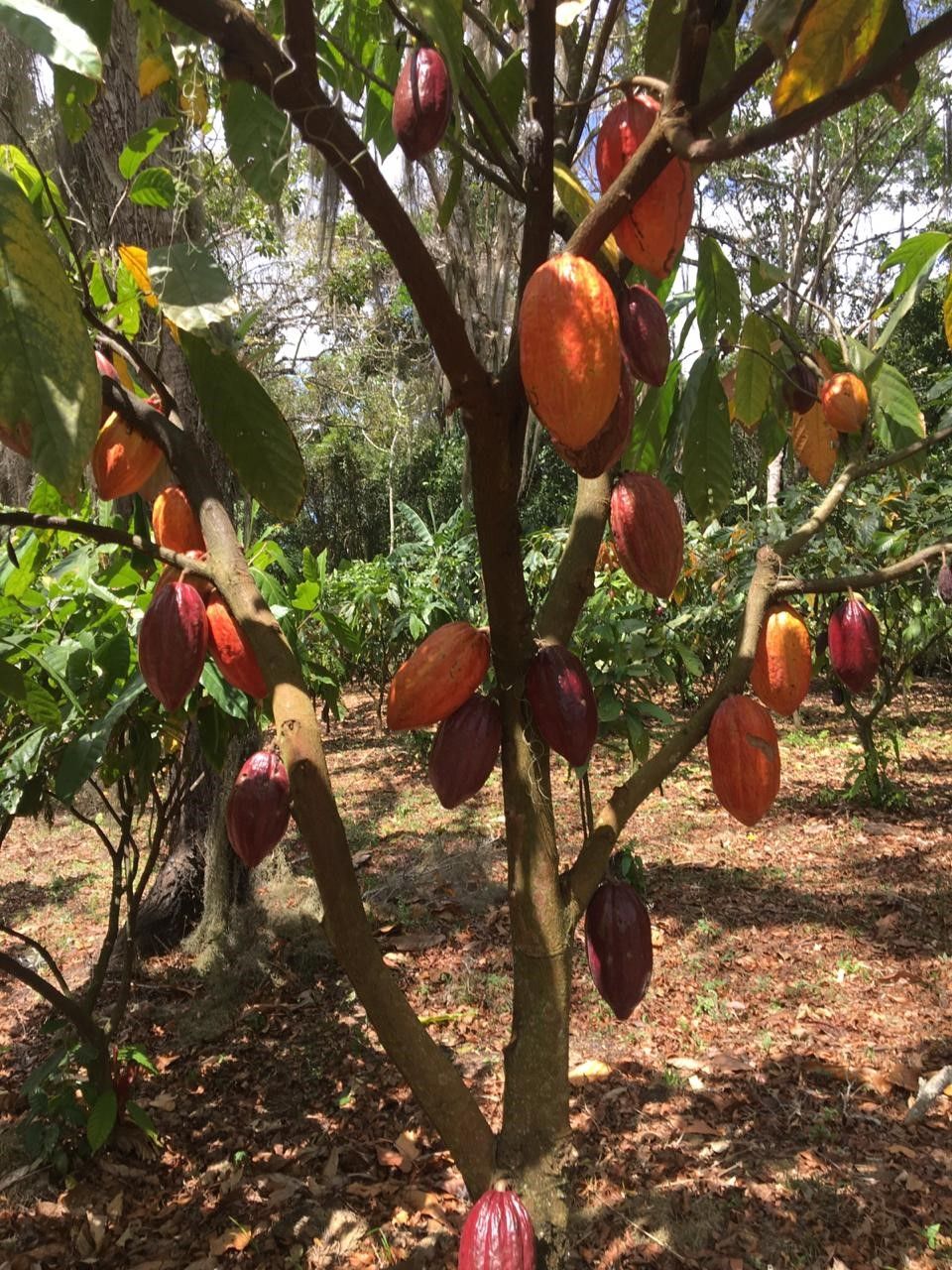
Paulo Gonçalves: “Espírito Santo is known for having an excellent terroir, with a wonderful microclimate for cocoa. In the region, we have 264 lagoons, which explains the great relative humidity of the air. Combined with a very rich soil, full of potassium, it makes the fruits of the region very tasty and sweet.”

“In 2001, I was already thinking about another type of business, using natural chocolate, without preservatives, as the Aztecs and Maya did.”
Currently, he has two farms, São José and Ceará, which together have 317 hectares (approximately 783 acres), with 317,000 cocoa plants. In the beginning, the orchards were made of forasteiro cocoa, whose seeds came from Bahia. In 2000, they renewed the area by planting Trinitarians, a cross between criolo and forasteiro cocoa, which are more productive and more tolerant to drought and the witch’s broom plague.
It should be noted that Espírito Santo is the third largest cocoa producer in Brazil and, according to Gonçalves, has always been concerned with technically evolved management. “It was the first state to use irrigation in cocoa crops and to advocate for appropriate pruning management, and this has meant that the state’s productivity has always been high. “You know how it is. Productivity is everything – it allows us to pay our bills,” he said.
“We already had 36 families on the farms, with housing, clean water, buses for children to go to schools, and colleges in the region. “Unfortunately, today, after the dam collapsed, many workers preferred to leave the region. Labor is hard to find these days. We have only half of the number of workers,” he said.
About 80% of the cocoa production on his properties comprises specialty cocoa, which Paulo uses to produce the Espírito Cacau brand. In turn, the remaining 20%, which comprises commodity type 1 cocoa, is sold to the large industry. “I sell this cocoa at a competitive price and, if by chance, I need to buy bulk cocoa mass, I can buy it cheaper than using my own cocoa,” he noted.
Product lines
